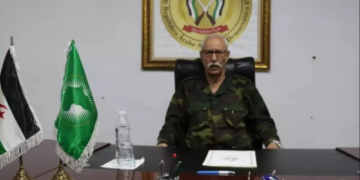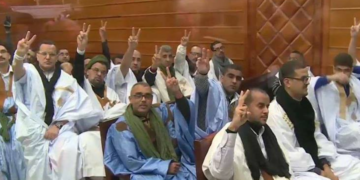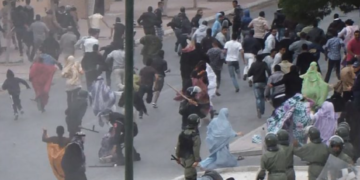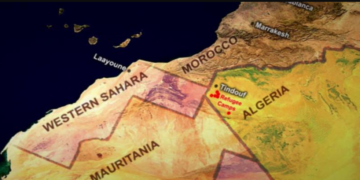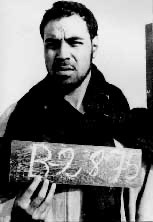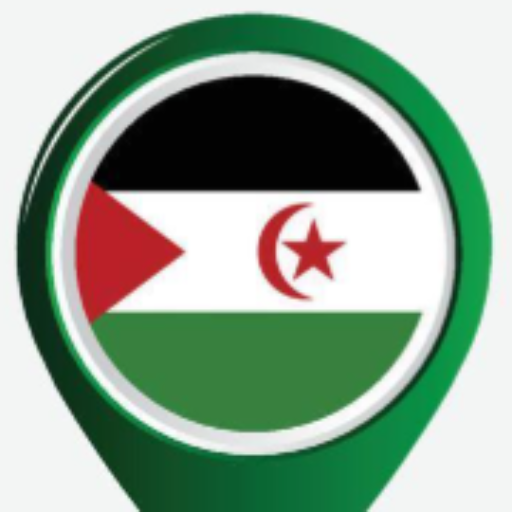Mohamed Sidi Ibrahim Bassiri was born in October 1942, into a family deeply rooted in religious and national values. He received his first lessons from his father, Sheikh Sidi Ibrahim Bassiri, before continuing his studies in Quranic schools. In the late 1950s, he obtained the Baccalaureate in Original Sciences and Literature, opening a new chapter in his academic and intellectual journey.
Academic and Intellectual Path
In 1959, Bassiri traveled to Cairo, where he studied at Al-Azhar University. However, his inclination toward modern sciences later led him to enroll at Damascus University, where he earned a degree in Political Science. Upon his return to his homeland in 1965, he engaged in journalism through the newspaper Al-Assas (The Foundation), a field that helped him shape a clear political vision enriched by his experiences in the Arab East.
In 1967, he founded the newspaper Al-Shumu’ (The Candles), which only published three issues before Moroccan authorities shut it down and confiscated its content. Although the paper mainly focused on youth and social issues, an article titled “The Sahara for the Sahrawis” was enough to turn him into a troubling voice for the Moroccan occupation.
Between Two Colonialisms: Spanish and Moroccan
As repression increased, Moroccan authorities sought to arrest him. He managed to move between several southern Moroccan towns before settling in Smara, where he was detained by the Spanish colonial authorities. After spending several days in prison, he was released under pressure from his family and local notables, at a time when Moroccan security services were actively pursuing him.
Founding the Vanguard Movement
Following his release, Bassiri entered a new and decisive stage in both his life and the history of the Sahrawi people. He began mobilizing the population and uniting them around a clear national project aimed at dismantling the colonial policies of tribalism and regionalism. This vision materialized with the creation of the Vanguard Organization for the Liberation of Saguia el-Hamra and Río de Oro, which marked a turning point in the Sahrawi national struggle.
In March 1970, Bassiri submitted a memorandum to the Spanish government demanding independence for Western Sahara — a bold step that exposed the true face of Spanish colonialism and its complicity with Morocco.
The Historic Zemla Uprising
The Vanguard Organization quickly attracted large numbers of Sahrawis, particularly from within the colonial administration itself, and adopted a well-structured organizational model that spread across the entire territory. This work culminated on June 17, 1970, when thousands of Sahrawis marched peacefully in Laayoune in what became known as the Zemla Uprising.
The Spanish authorities responded with brutal violence, turning the peaceful demonstration into a bloodbath. Bassiri, along with hundreds of Sahrawis, was arrested. Since then, his fate has remained unknown, as he was forcibly disappeared by the Spanish colonial regime.
Bassiri and the Sahrawi National Memory
The founding of the Vanguard Organization in the late 1960s was a landmark in the history of Sahrawi nationalism. It reasserted the independence of the Sahrawi people and their homeland, reclaiming history from colonial erasure and distortion. Bassiri was fully aware of the dangers posed by the manipulation and suppression of Sahrawi history by both Spanish colonialism and neighboring states. For him, restoring this history was a source of pride, dignity, and national strength.
The legacy of Mohamed Bassiri did not end with his disappearance; rather, it became a beacon that guided the Sahrawi struggle and directly inspired the creation of the Polisario Front three years later — the natural continuation of his vision of liberation and unity.

